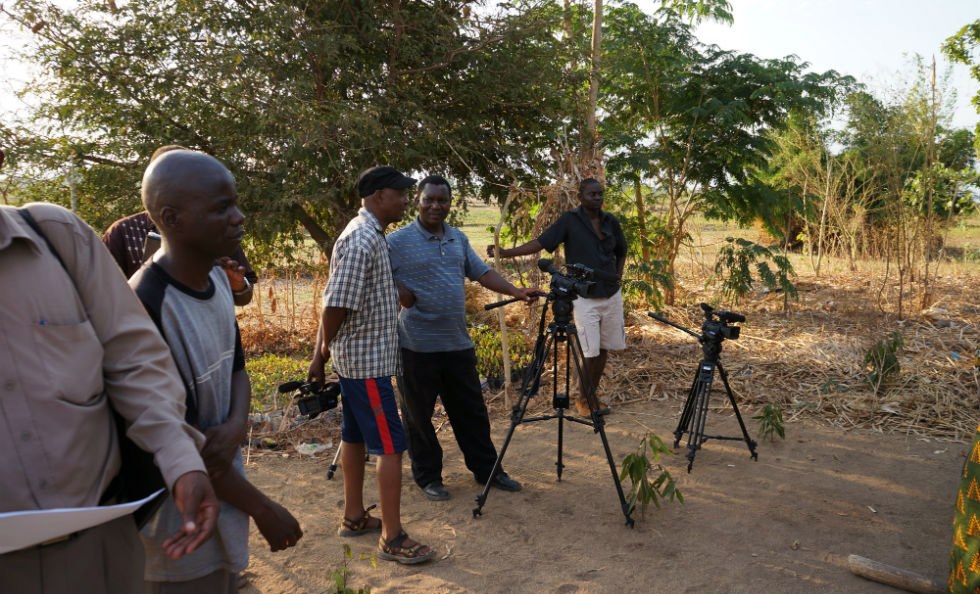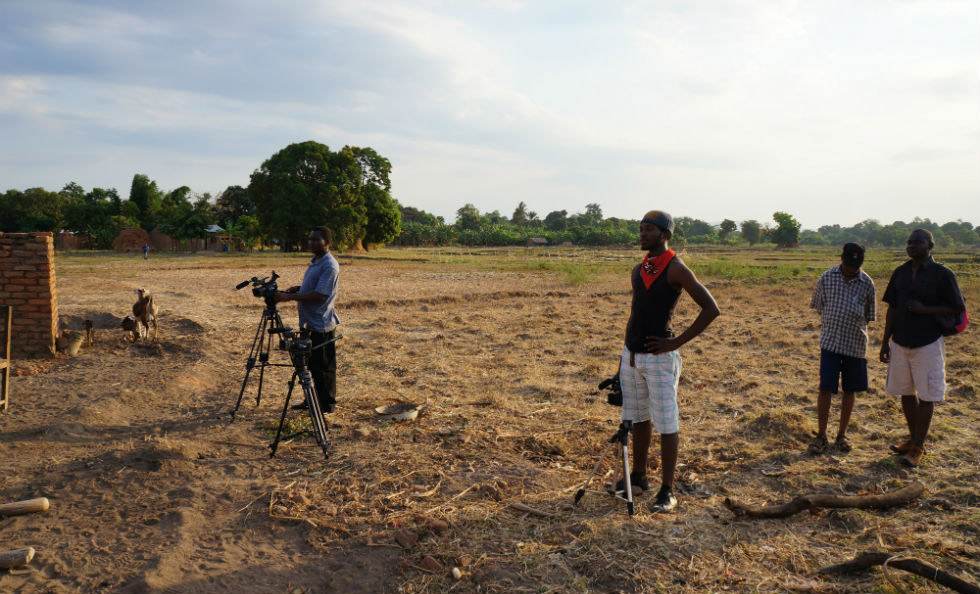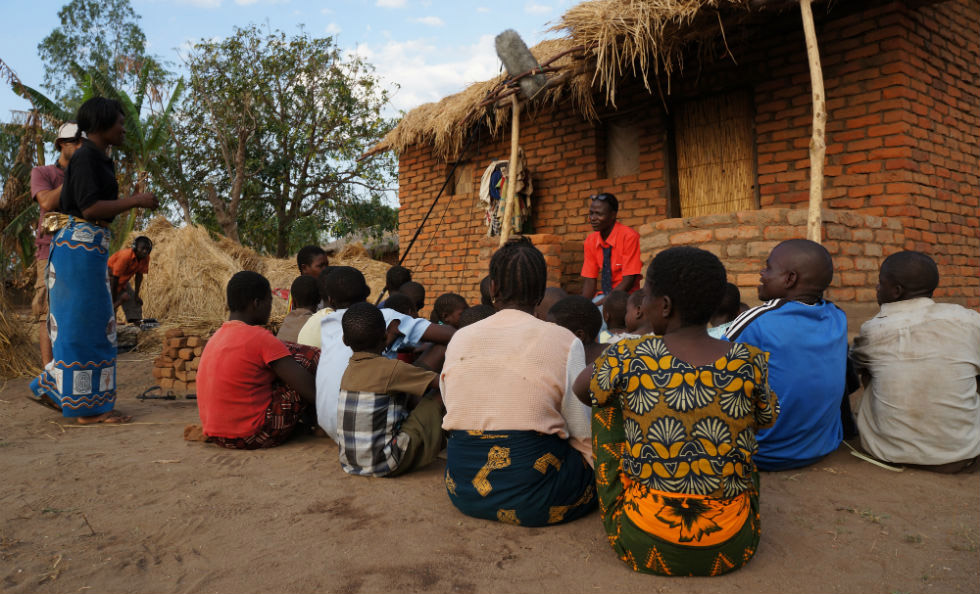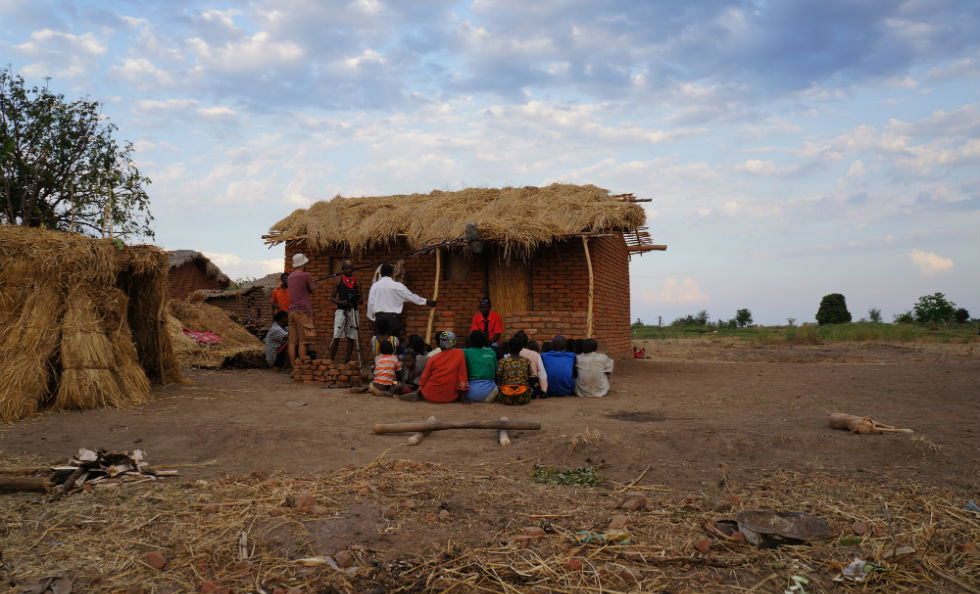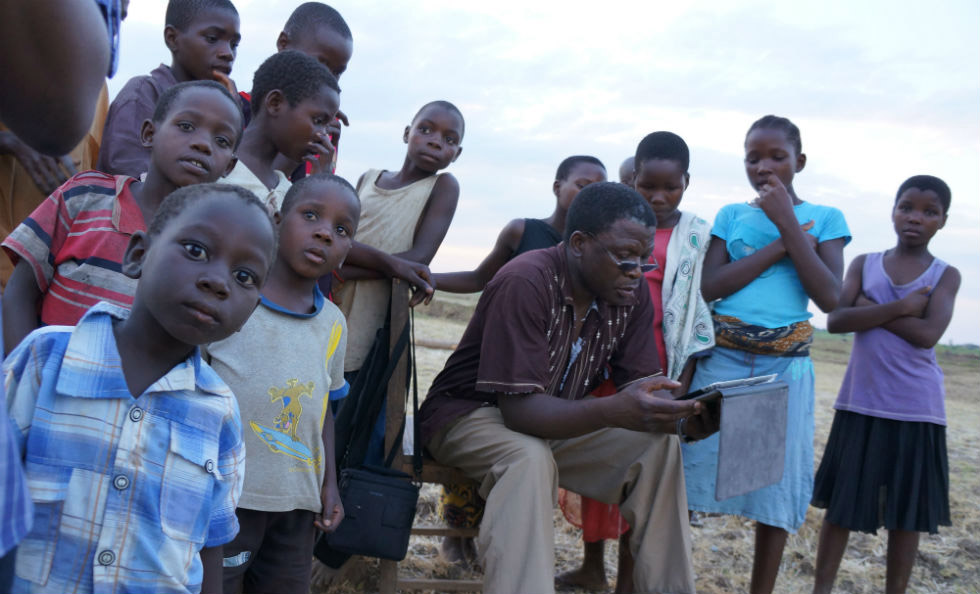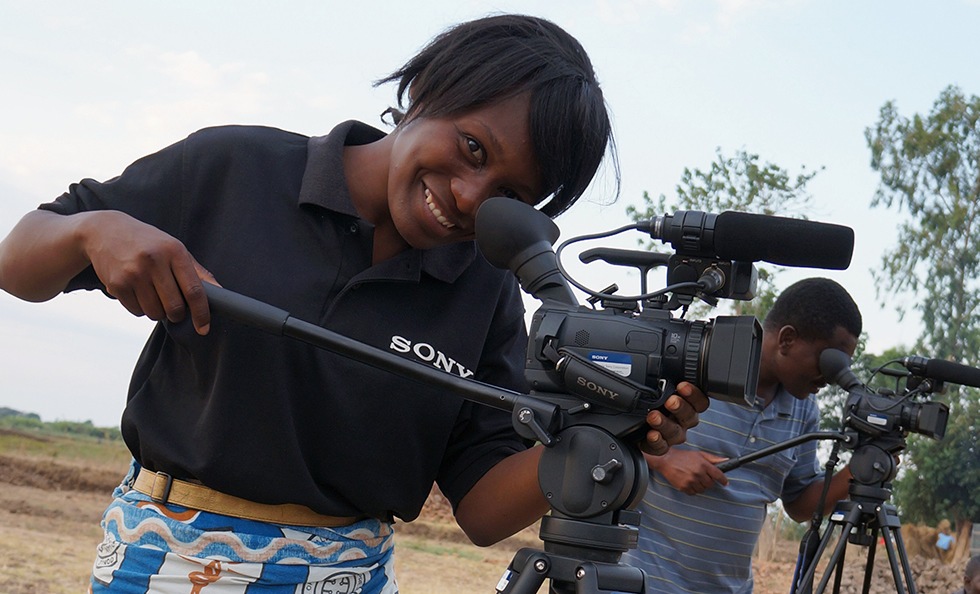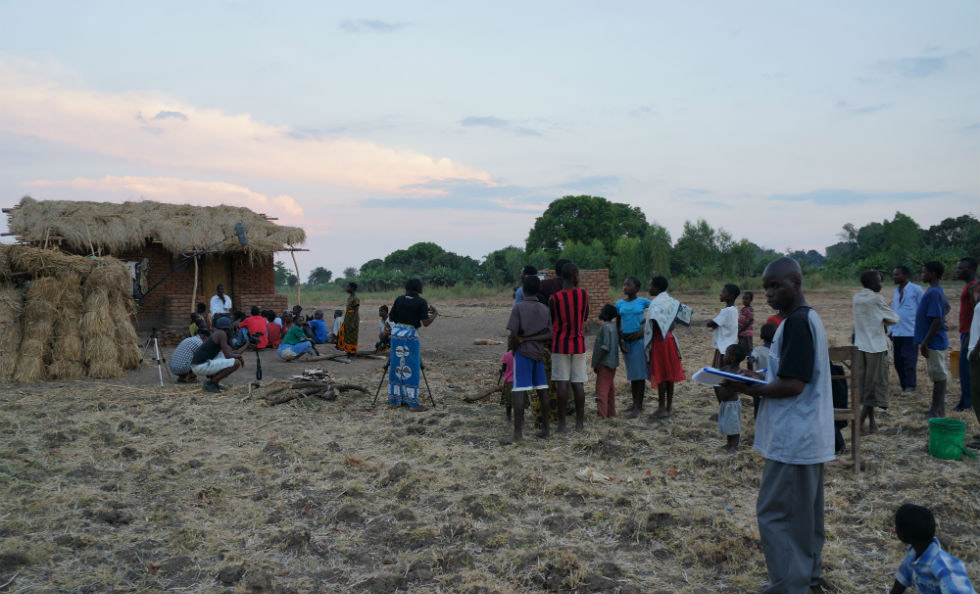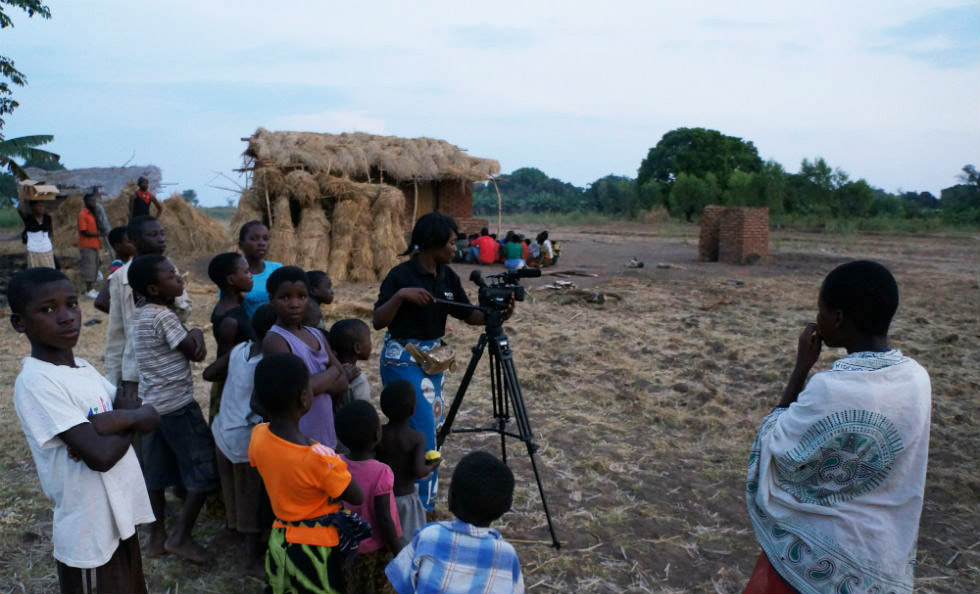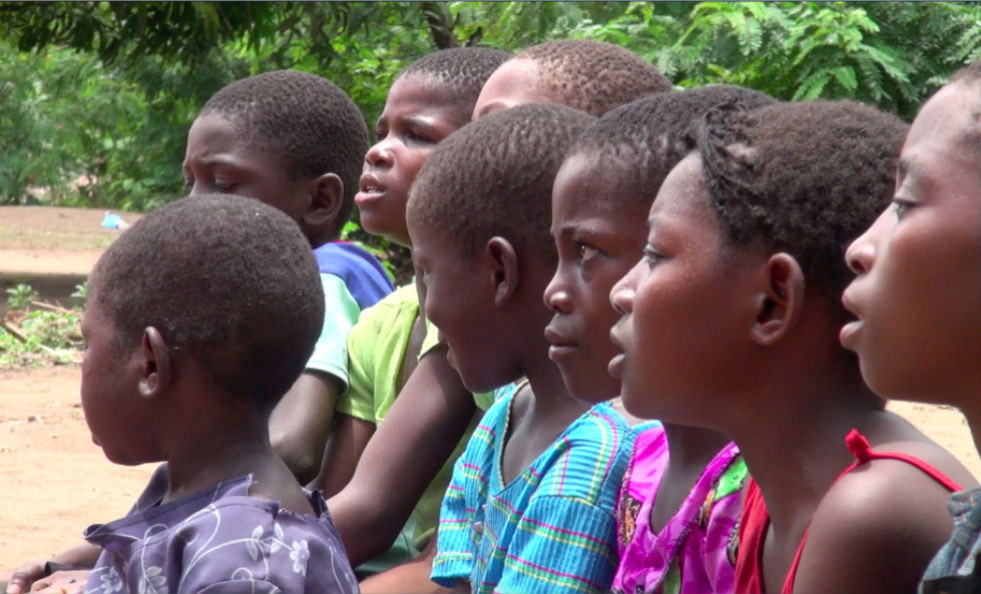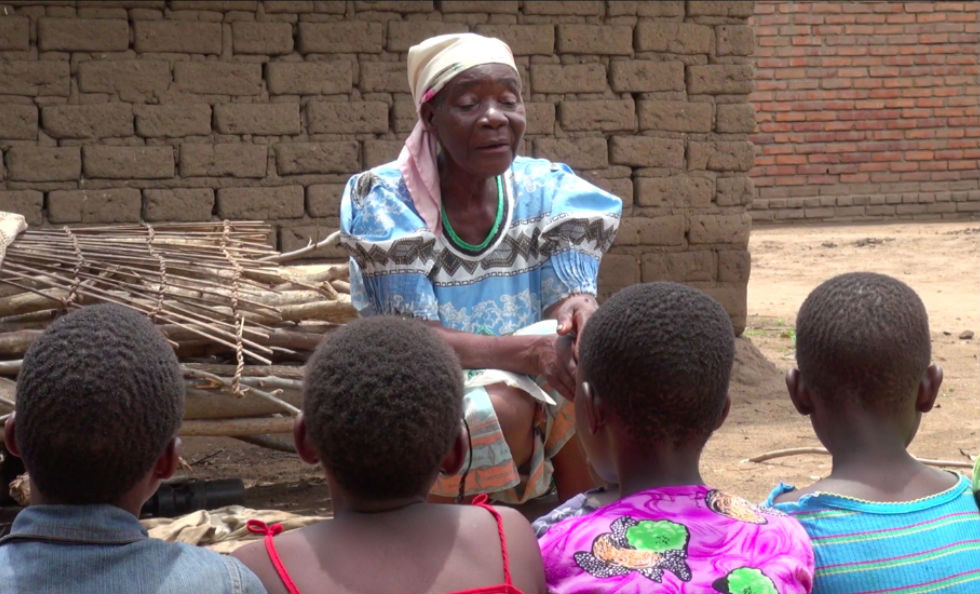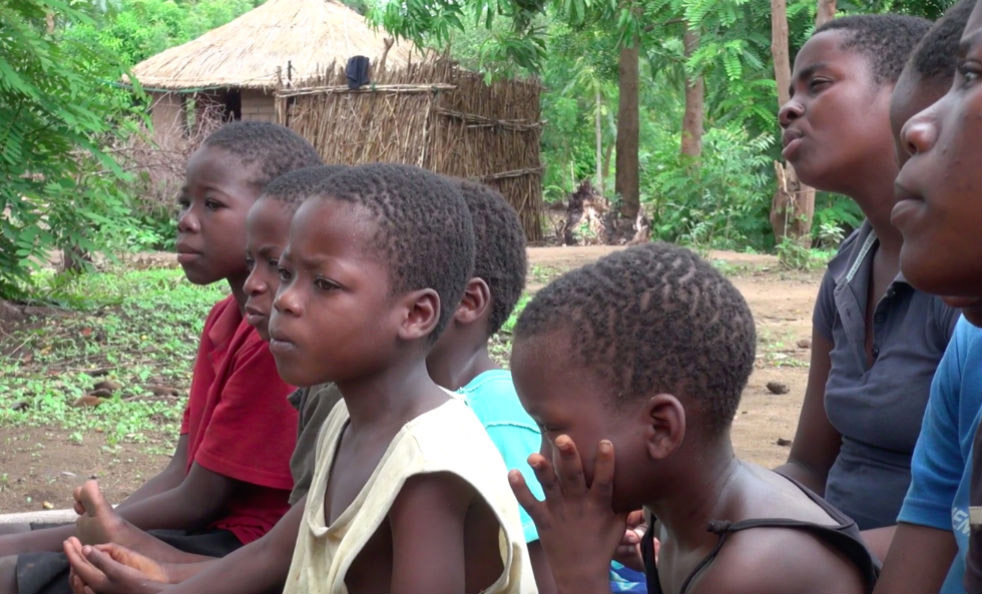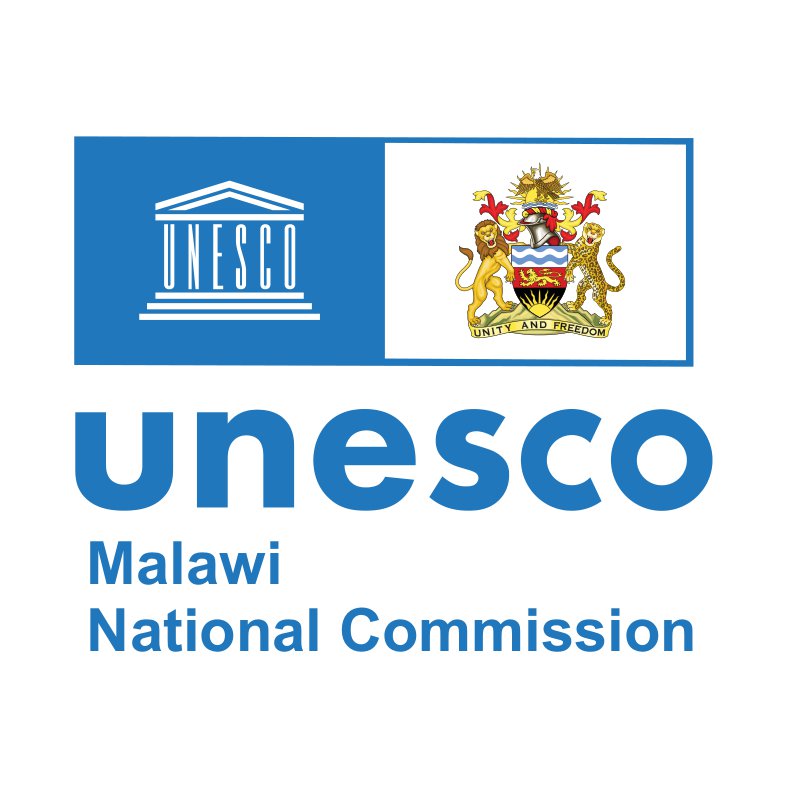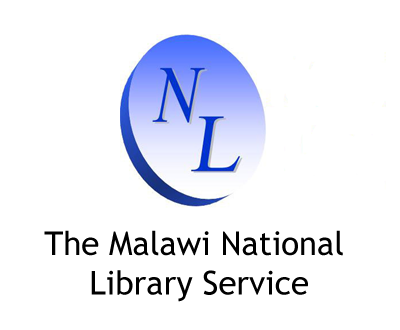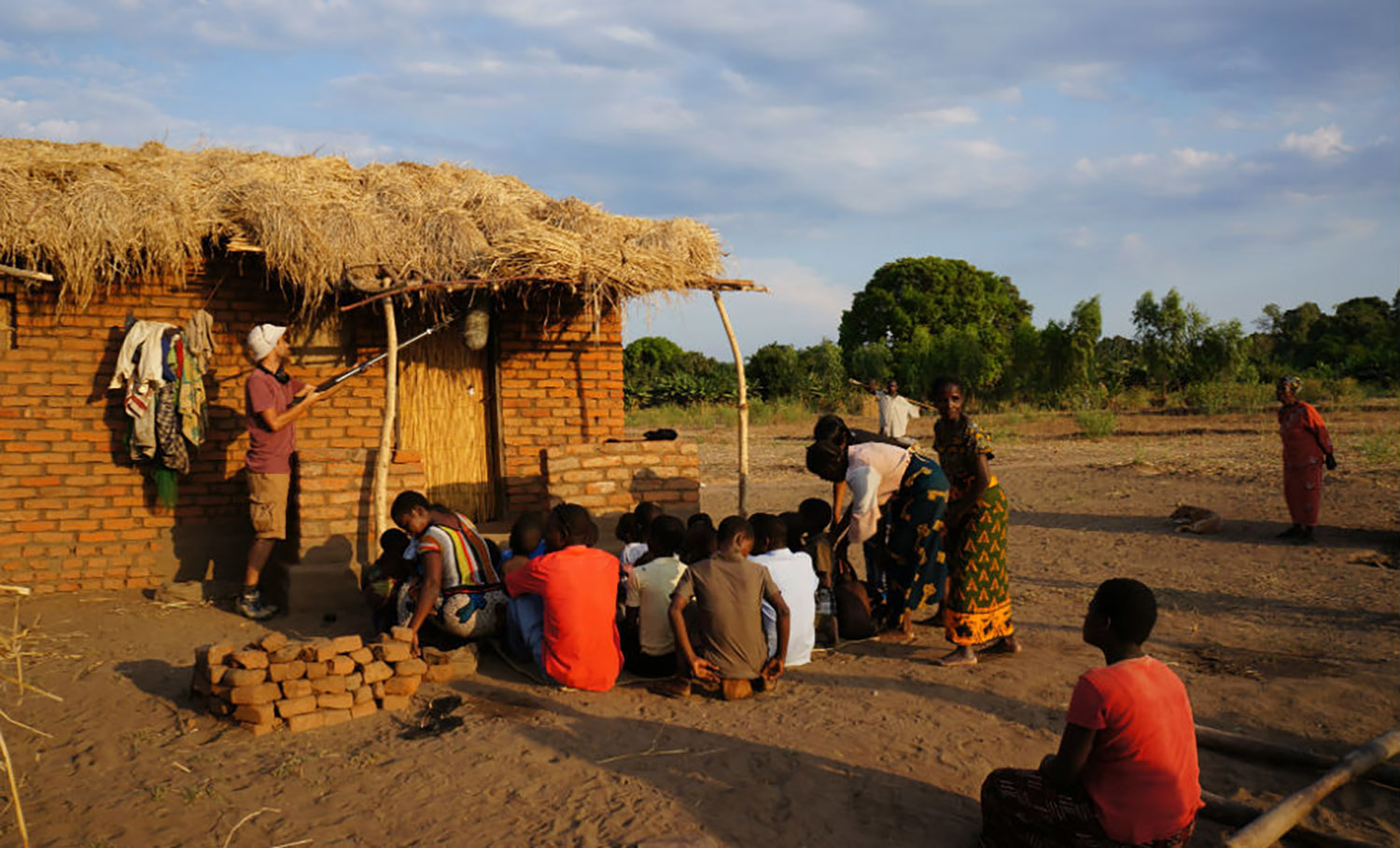
Documenting Malawian folktales
December 2011 - present
Malawi
A local storyteller performs for a young audience, and the project team's cameras.
Documenting Malawian folktales
December 2011 - present
Malawi
"A nation without culture is worthless. Folktales carry the basic principles of this culture which we must preserve."
— Christopher Magomelo, Assistant Executive Secretary for Culture, Malawi National Commission for UNESCO
The art of traditional folktale storytelling in Malawi is a unique treasure, but has been fading from prominence in modern society, due to changes in lifestyles and the ageing of the community artists who deliver these live performances. Before this project was conceived, little had been done to safeguard and promote this cultural heritage.
This is why, in 2011, Rei Foundation partnered with Malawi National Commission for UNESCO, with support from Sony, to embark on a years-long project whose mission was to digitally record and document folktales which have been passed down orally for generations.
This is why, in 2011, Rei Foundation partnered with Malawi National Commission for UNESCO, with support from Sony, to embark on a years-long project whose mission was to digitally record and document folktales which have been passed down orally for generations.
It aimed to celebrate and safeguard these key elements of Malawian culture, to use the folktales to teach life skills in early and primary education, and to communicate Malawian wisdom and culture to people across the world.
This project provided the basis for several others around Malawi, each underpinned by our shared mission of preserving and celebrating the art of traditional Malawian folktales and the skilled storytellers who perform them.
This project provided the basis for several others around Malawi, each underpinned by our shared mission of preserving and celebrating the art of traditional Malawian folktales and the skilled storytellers who perform them.
"According to the elders’ vision of the world, everything, trees, animals, rivers, stones, mountains, is endowed with life, hence the interaction of humans and non-humans in the folktales. Mountains, trees or stones were believed to be the abode of the spirits."
— Professor Boston Soko, of Mzuzu University
Folklore is a broad composite term for the customs, beliefs, stories and traditions of a particular group of people. Folktales are an important genre of folklore: popular stories whose origins are often unknown, which are passed down from generation to generation.
Professor Boston Soko, of Mzuzu University, Malawi, explains that the emphasis within Malawi folklore “is on respect for tradition as well as nature. There is a belief that everything, according to the elders’ vision of the world, trees, animals, rivers, stones, mountains, is endowed with life, hence the interaction of humans and non-humans in the folktales. Mountains, trees or stones were believed to be the abode of the spirits. Because today respect for these has disappeared, we see the wanton cutting down of trees, the destruction of sacred places and the disinterest in oral traditions.”
Professor Boston Soko, of Mzuzu University, Malawi, explains that the emphasis within Malawi folklore “is on respect for tradition as well as nature. There is a belief that everything, according to the elders’ vision of the world, trees, animals, rivers, stones, mountains, is endowed with life, hence the interaction of humans and non-humans in the folktales. Mountains, trees or stones were believed to be the abode of the spirits. Because today respect for these has disappeared, we see the wanton cutting down of trees, the destruction of sacred places and the disinterest in oral traditions.”
As an oral tradition, folktales are shared by word of mouth in constantly shifting yet recognisable forms. Because each new teller does not read from a fixed text, the words of these living stories will always be altered to some degree in the retelling, finding a subtly different expression in each individual’s voice.
A story that is told only once is not a folktale because, although oral, it is not traditional. What defines an oral story as a folktale are the variants of the story to be found in divergent times and places. Recording folktales in digital form, our project team captured instances of the authentic living performance; the nuances of spoken word and gesture interacting with a responsive audience.
A story that is told only once is not a folktale because, although oral, it is not traditional. What defines an oral story as a folktale are the variants of the story to be found in divergent times and places. Recording folktales in digital form, our project team captured instances of the authentic living performance; the nuances of spoken word and gesture interacting with a responsive audience.
Malawi is endowed with a rich diversity of cultures, represented by the more than 16 languages spoken by various ethnic groups spread throughout the country. Each of these ethnic groups has a multitude of stories handed down from generation to generation. Some of these stories are similar in content and meaning in spite of the different group narrating them, differentiated only by language.
In order to collaborate ethically with each village, the research team spent time getting to know the people and gaining permission to work from traditional authorities and village head-people, who also assisted the team in finding storytellers. Once these relationships had been established and leaders and residents were happy to proceed, the technical team would come, prepared with equipment and training from Sony, to record storytellers tell stories to local children. In this manner, the project team embarked on an extensive tour of Malawi to collect these stories as audiovisual recordings.
In order to collaborate ethically with each village, the research team spent time getting to know the people and gaining permission to work from traditional authorities and village head-people, who also assisted the team in finding storytellers. Once these relationships had been established and leaders and residents were happy to proceed, the technical team would come, prepared with equipment and training from Sony, to record storytellers tell stories to local children. In this manner, the project team embarked on an extensive tour of Malawi to collect these stories as audiovisual recordings.
The project has collected over 250 stories, recorded all over the country and in several languages. To ensure the widest accessibility, each story was translated first from the local language into Chewa (Malawi’s most widely spoken local language) and then into English. The English subtitles were reviewed and confirmed by a reviewing panel composed of Dr Robert Chanunkha (from Malawi University of Science and Technology), Dr Grant Nthala and Dr Emmanuel Ngwira (both from the University of Malawi).
The project also recorded some stories told in endangered languages with very few speakers, which were not able to be translated. The video recordings and related data will be saved on BluRay discs (currently the safest format) and kept at three different locations (two different locations in Malawi and in Auckland, Aotearoa) for risk reduction.
The project also recorded some stories told in endangered languages with very few speakers, which were not able to be translated. The video recordings and related data will be saved on BluRay discs (currently the safest format) and kept at three different locations (two different locations in Malawi and in Auckland, Aotearoa) for risk reduction.
Another positive outcome of this project has been the upskilling of several people on the project team. Staff from the National Library Service were trained with technical skills to operate cameras and edit video, skills they have been able to use in their work since. There were also a cohort of young Malawians selected to join the tour to learn from the project team. One of these young people has started his own business, and another went on to employment with a local broadcaster. This is a testament to the project’s aim to grow a community of local Malawian professionals in the fields of research, development and audio visual recording and editing.
Back in 2011, MNCU and Rei Foundation made a commitment to develop a project that would celebrate and safeguard Malawi’s unique cultural heritage. This project provided the basis for the dissemination of the collected stories, through different mediums and locations around Malawi.
Back in 2011, MNCU and Rei Foundation made a commitment to develop a project that would celebrate and safeguard Malawi’s unique cultural heritage. This project provided the basis for the dissemination of the collected stories, through different mediums and locations around Malawi.
The project team and Rei Foundation considered the best ways we could make the stories accessible to different target groups, including sharing the recordings with the people and villages who shared stories with us. For instance, some communities we collected stories from were very remote, with no or limited access to electricity or internet. The best way to share recordings with these people would be to come back to them and conduct public screenings – this is being planned currently.
For smaller children, we felt the best method to share the stories would be to use live storytelling, so in Lilongwe, Malawi’s capital, weekly storytelling sessions for children have been established at the National Library Service Headquarters. These feature some storytellers the team encountered during the collection process, and storytellers have access to the folktales collection database and can choose the stories they want to tell from each week.
For smaller children, we felt the best method to share the stories would be to use live storytelling, so in Lilongwe, Malawi’s capital, weekly storytelling sessions for children have been established at the National Library Service Headquarters. These feature some storytellers the team encountered during the collection process, and storytellers have access to the folktales collection database and can choose the stories they want to tell from each week.
The sessions have surpassed all expectations in terms of their popularity among children, and have encouraged children to read in the library before and after the sessions. A folktale collection programme has also been launched in the extremely diverse Dzaleka Refugee Camp, with residents being invited to share stories from their home countries. There is a plan to begin storytelling sessions at a school within the camp, featuring both stories collected at Dzaleka and also Malawian stories from the initial folktales project. Conversely, Dzaleka’s residents’ stories will be shared at the Lilongwe sessions.
Nanzikambe, a local theatre organisation, adapted some of the stories into stage dramas, employing a full cast and crew to create and perform plays around the country, bringing the stories to large audiences. For people living outside of Malawi or Malawians unable to attend screenings or storytelling sessions, we are currently planning an online interactive database that will hold the folktales and other cultural treasures, for people around the world to enjoy.
Return to Projects




